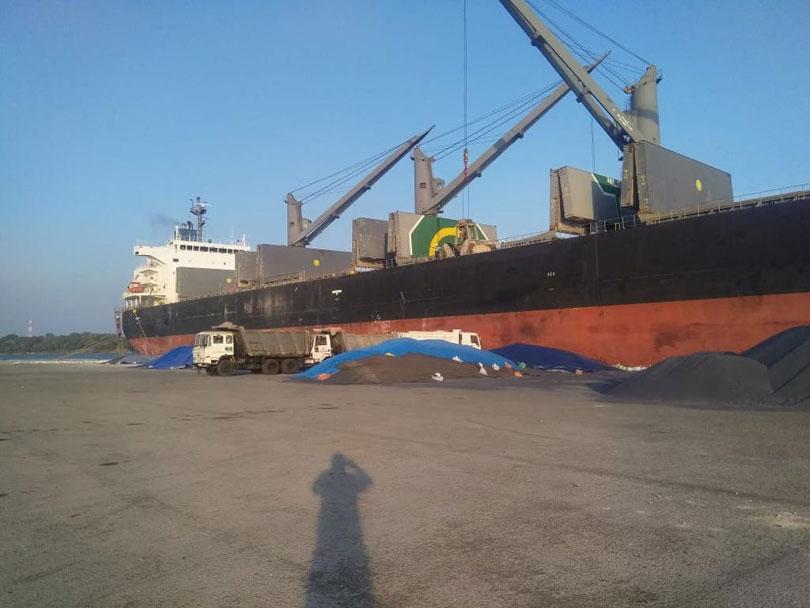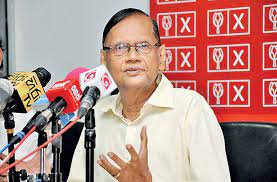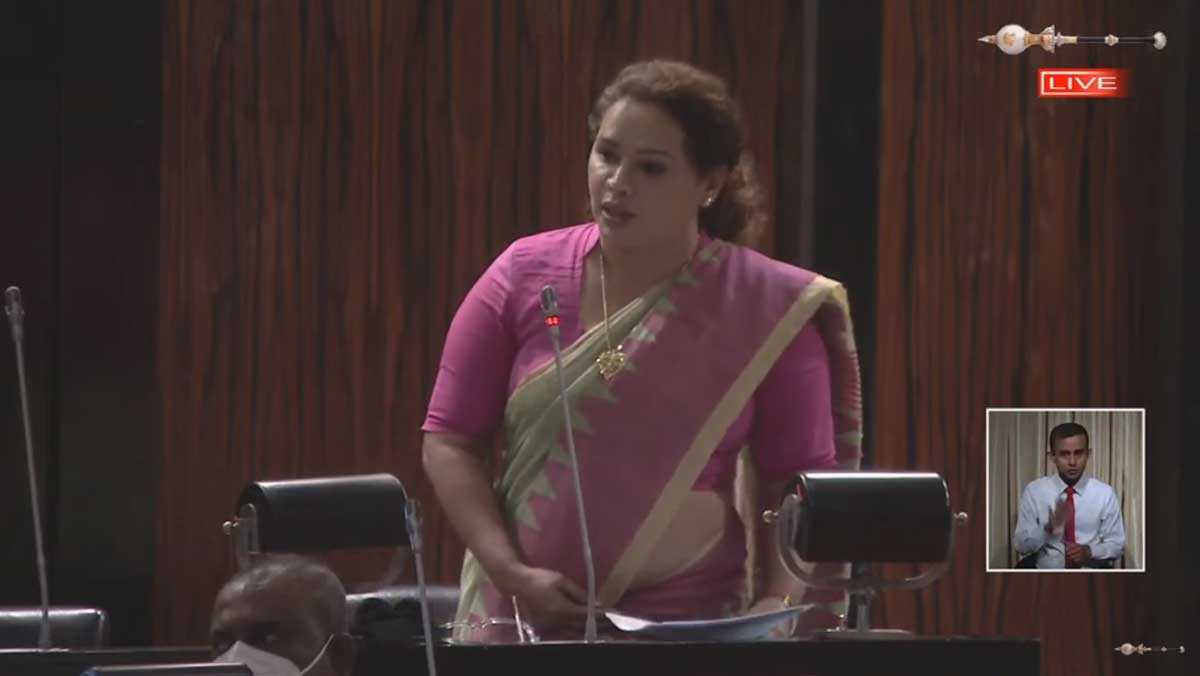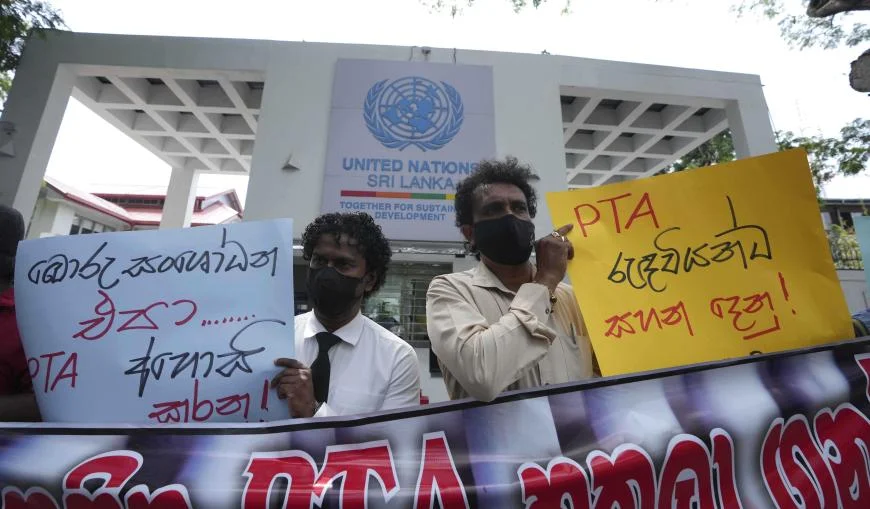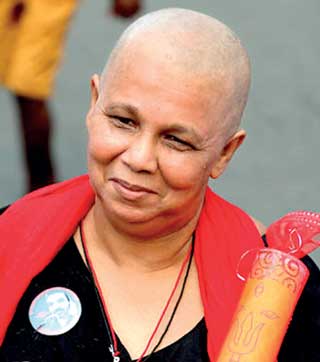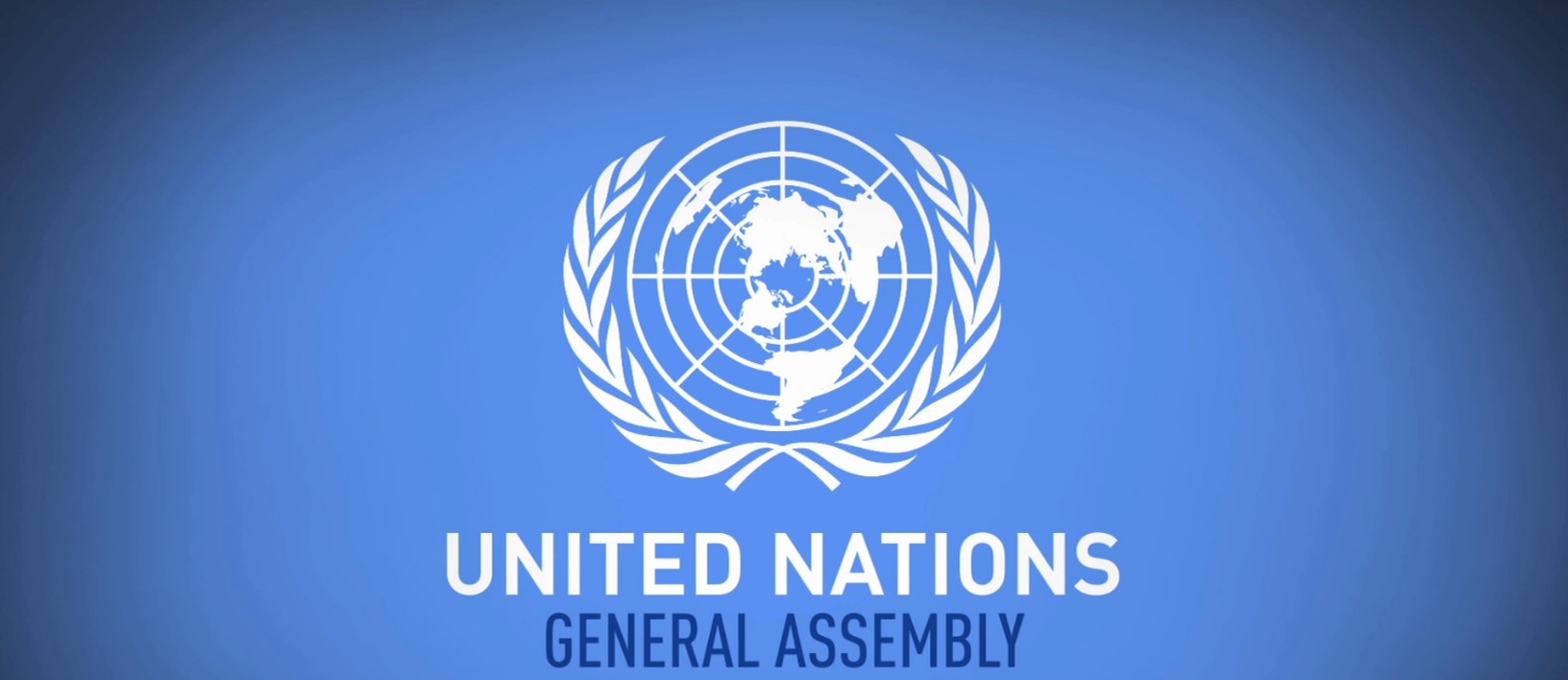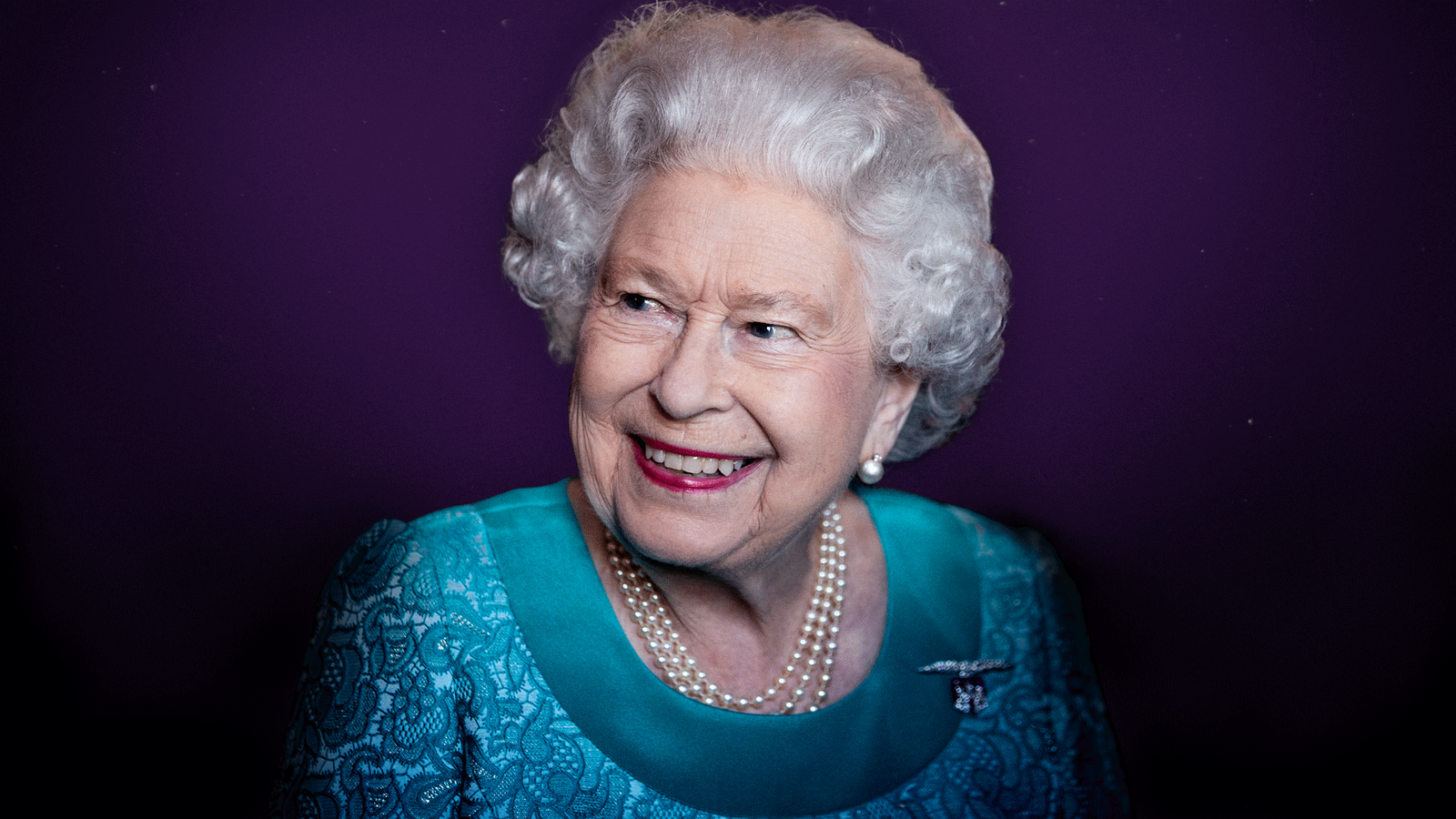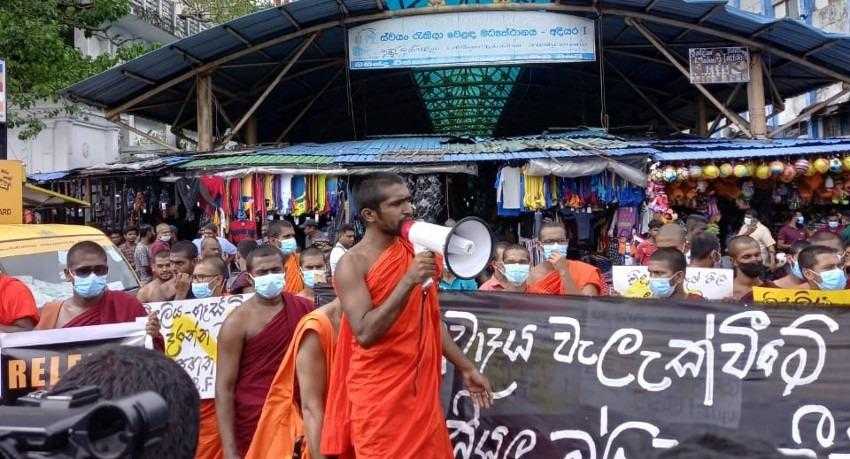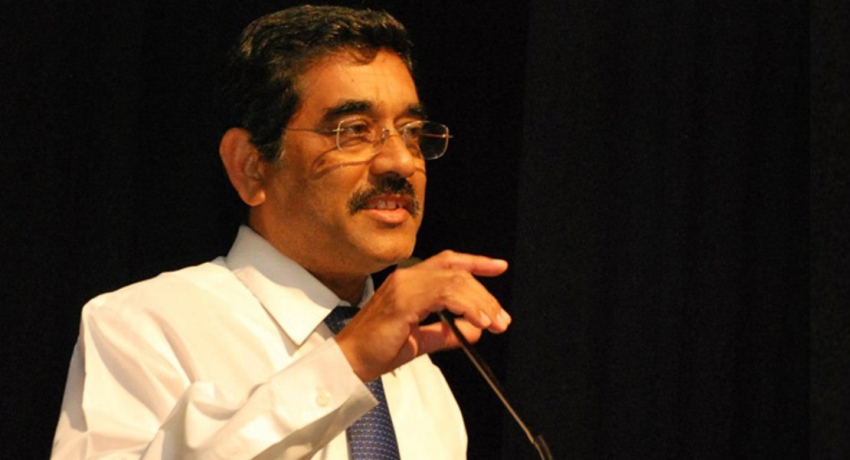The United Nations Human Rights Council should adopt a strong resolution on Sri Lanka that strengthens current UN mandates on accountability for crimes under international law and monitors the country’s deteriorating human rights situation, four international human rights organizations said in a letter to council member states published today. The resolution should also call upon Sri Lanka to address ongoing abuses, including by ending use of the draconian Prevention of Terrorism Act.
Sri Lanka has been suffering a severe economic, political, and human rights crisis. The former president, Gotabaya Rajapaksa, resigned in July 2022 following massive protests, and his successor, Ranil Wickremesinghe, has used abusive security measures to suppress freedom of expression and peaceful assembly. In a wide-ranging report released on September 6, the former UN High Commissioner for Human Rights Michelle Bachelet said, “Sri Lankans came together … in a mass protest movement to demand greater transparency, accountability for corruption and economic mismanagement and increased participation in democratic life.” She called upon the government to respect the rights of protesters, end impunity for past violations, and address the root causes of the current crisis.
“For many years the victims of past abuses in Sri Lanka have demanded justice, while successive governments have broken promises, blocked accountability, and promoted those implicated in war crimes to high office,” said Meenakshi Ganguly, South Asia director at Human Rights Watch. “The UN Human Rights Council should adopt a resolution on Sri Lanka that presses the government to uphold accountability and the rule of law.”
At the 51st session of the Human Rights Council, which began on September 12, member states will review and update a March 2021 resolution that established a UN accountability project to collect and prepare evidence of international crimes committed in Sri Lanka for use in future prosecutions, and mandated the UN to monitor and report on the current situation in the country. It is essential to renew and strengthen those mandates, including with additional resources, Amnesty International, FORUM ASIA, Human Rights Watch, and the International Commission of Jurists said in their letter.
In her report, the UN High Commissioner described how “deepening militarization and lack of transparency and accountability in governance … have embedded impunity for serious human rights violations and created an environment for corruption and the abuse of power.” In the absence of accountability within Sri Lanka, she said that UN member states should prosecute Sri Lankans accused of committing international crimes in foreign courts under the principle of universal jurisdiction, and support efforts to trace and freeze stolen assets held abroad. The high commissioner also called for an international role in investigations into the 2019 Easter Sunday bombings, which killed over 250 people, noting that there remain unanswered questions over the role of the Sri Lankan security forces.
“The high commissioner has presented clear findings that require urgent international action to end impunity and provide for justice to Sri Lankans,” said Massimo Frigo, UN representative and senior legal adviser at the International Commission of Jurists. “A decade of Human Rights Council engagement on Sri Lanka has been a source of hope for victims and resulted in sporadic and unfulfilled pledges to reform, the council needs to give the issue sustained attention.”
Since becoming president on July 21, President Wickremesinghe has sent the military to violently disperse protesters and arrest scores of people accused of participating in protests. He has ordered the use of the notorious Prevention of Terrorism Act to detain three student leaders without charge. The previous foreign minister, G.L. Pieris, told the Human Rights Council in June that the government would observe a moratorium on the use of that law, while the current foreign minister, Ali Sabry, then justice minister, gave the same assurances to Sri Lanka’s parliament in March.
On September 8, President Wickremesinghe appointed three people implicated in human rights abuses as government ministers. Sivanesathurai Chandrakanthan, known as Pillayan, is a former member of a separatist Liberation Tigers of Tamil Eelam (LTTE) unit who later joined a pro-government armed group, both of which committed abductions and recruiting of child soldiers. In 2001, the attorney general dropped charges against him in connection with the 2005 murder of a parliamentarian. Another newly appointed minister, Lohan Ratwatte, resigned as prisons minister in September 2021 after threatening prisoners at gunpoint. A third, Sanath Nishantha, is currently under police investigation in connection with a violent attack on anti-government protesters on May 9.
“These ministerial appointments show that the Wickremesinghe administration cannot be expected to credibly pursue accountability for human rights violations or uphold the rule of law,” said Ahmed Adam, UN advocacy programme manager at FORUM-ASIA. “The alarming situation in the country today calls for robust and clear-eyed resolution from the Human Rights Council to protect the rights of people in Sri Lanka.”
In their letter to member states, the groups said that the new Human Rights Council resolution should address threats to human rights in Sri Lanka and violations connected to the country’s present crisis. The resolution should call on the government to:
Respect the rights of people to freely and peacefully protest and express their views without fear of reprisal or arrest;
End the harassment, intimidation, and arbitrary arrest of people believed to have participated in or supported recent protests;
Repeal the Prevention of Terrorism Act, issue an immediate moratorium on its use in the interim period, review the detention of those held under the law, immediately release all those not facing internationally recognizable charges, and ensure that everyone detained under the law, including those in pretrial detention, are tried promptly and fairly in a regular court; and
Restore the independence of the judiciary and Human Rights Commission.
“Time and again we have seen successive Sri Lankan governments make commitments to the Human Rights Council that are then broken or disavowed,” said Yamini Mishra, South Asia director at Amnesty International. “Member states should press Sri Lanka on its commitments and call for action now to end the abuses that are taking place, while renewing and enhancing the UN’s mandates to monitor the situation and pursue accountability for past abuses.”
Source: Human Rights Watch


